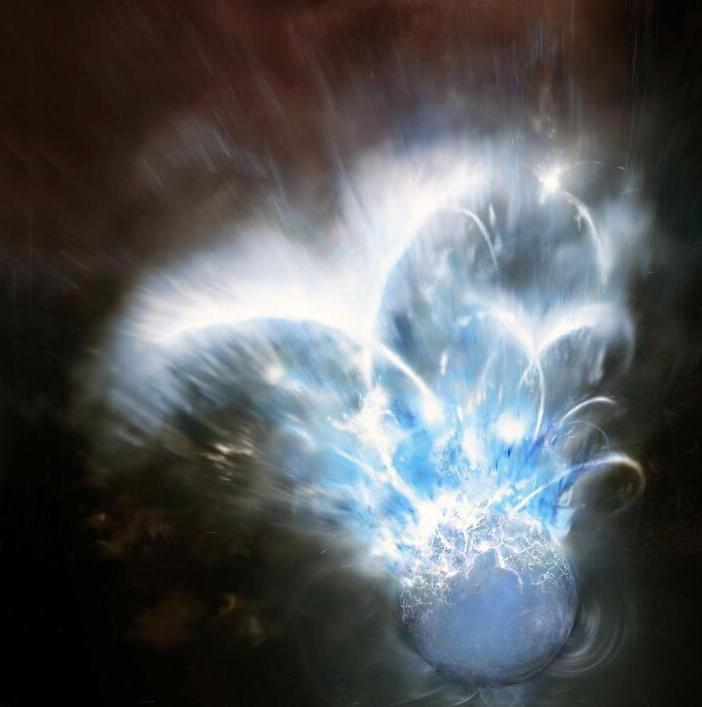An international scientific group with outstanding Valencian participation has managed to measure for the first time oscillations in the brightness of a neutron star – magnetar – during its most violent moments. In just a tenth of a second, the magnetar released energy equivalent to that produced by the Sun in 100,000 years. The observation has been carried out automatically, without human intervention, thanks to the Artificial Intelligence of a system developed at the Image Processing Laboratory (IPL) of the University of Valencia.
Among the neutron stars, objects that can contain half a million times the mass of the Earth in a diameter of about twenty kilometers, stands out a small group with the most intense magnetic field known: magnetars. These objects, of which only thirty are known, suffer violent eruptions that are still little known due to their unexpected nature and their duration of barely tenths of a second. Detecting them is a challenge for science and technology.
An international scientific team with outstanding participation from the University of Valencia has published recently in the journal Nature the study of the eruption of a magnetar in detail: they have managed to measure oscillations – pulses – in the brightness of the magnetar during its most violent moments. These episodes are a crucial component in understanding giant magnetar eruptions. It is a question long debated during the past 20 years that today has an answer, if there are high-frequency oscillations in the magnetars.
